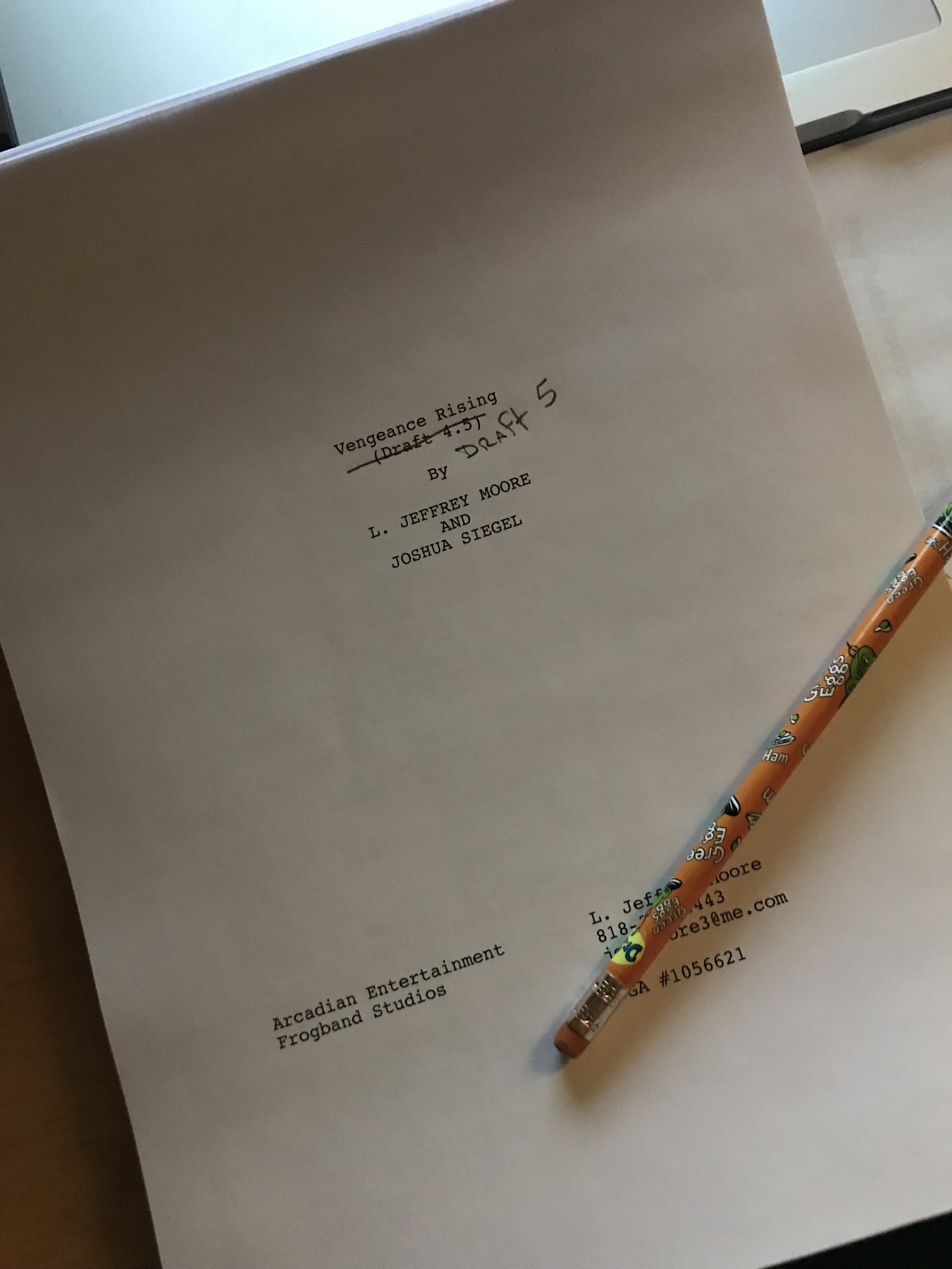...without breaking some eggs.
Nothing is more satisfying than writing a feature film. A full 90 plus pages of a gripping story that tens to hundreds of thousands (or millions) of dollars will be spent to turn words into a visual medium. As with anything writing a story and getting it made is an uphill battle and although there are times when you should pat yourself on the back for having done such a thing, one should also have someone, who has no vested interest in your feelings, give you the real deal. Such is the case for my first feature film that I co-wrote with writer/director Joshua Siegel back in 2004. The script Vengeance Rising is about two detectives who are on the hunt for a serial killer who's knocking off gang members of two rival organizations not knowing that it's a conjured Japanese vengeance spirit behind the murders.
Recently I was fortunate to have one of my producer friends down in LA take a look at the script and give it to someone who does coverage for a major agency in the industry. Now coverage is someone who reads a lot of horrible feature scripts to find that next hit film and then provides feedback. Now this feedback can range from "Awesome tweak this and that and you're done" to "Dear god don't quite your day job." Unfortunately this script falls on the later end of the spectrum and you know what? I completely agree with them. There have been some spots where I myself questioned if certain points in the script needed work and sure enough it did.....oh boy it did. Now that I have read this feedback I have a clear path on where to go with it. If you are new to screenwriting please learn from my experience and take a look at this short list of things to consider:
1. Proof read your work! Although I've gone through this script a million times, mistakes can still be overlooked. If you have someone else to be your second set of eyes, use them. These people do not want to be turned off because of misspelled words and parts of the script that isn't formatted correctly. IT MATTERS!
2. Make clear choices on the tone of your story. One of the critiques that I had was that my story didn't know where to go in regards to the tone. Is it a parody is it like a dime store novel. choose one and stick to it. Find a list of films that fit where you want to go with it and read the script if you can get a hold of it.
3. Don't take it personal. You want someone to be brutally honest with you. If it needs work, you will know if it does but nothing is worse than trying to defend a piece of work that is riddled with holes. Be honest with yourself and if you know it needs work, work on it. In the end real money will be used to make this thing and who wants to blow hard earned cash on mindless drivel (Unless its awesome mindless drivel. Thats a grey area...lol).
Trust me when I say that you have to have thick skin to read what someone has said about the work that you've done. In fact I am thankful for it. As an actor I am use to hearing "no" all the time. It's perseverance that wins at this game. So after making a few self deprecating jokes with my producer buddy, I picked myself back up dusted myself off and bought a pack of paper to print a hard copy of the script. Why? Because it's back to taking pencil to paper and chop this thing up like a samurai and piece it back together. When a major revision is needed I have to get messy and scratch through the text and write things and really become one with the story, and having something tactile really helps. So if you have something that needs work, get up off your a$$ and get to it!
